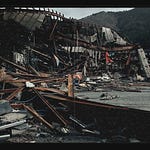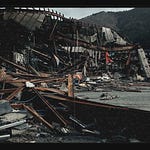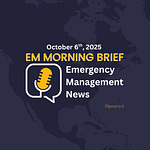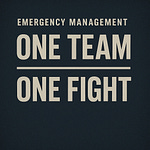It is 2 AM, and the phone rings. It is never good when the phone rings at 2 AM. Your heart is racing, and dispatch tells you that a major fire has ripped through a senior housing development. The watch commander is requesting resources and the EOC to be activated.
Decisions are being made, and you need to get into your OODA Loop fast, or you will be behind the eight ball.
When making decisions under pressure keeping things simple makes a huge difference. One of the flaws of being human, we are drawn to complexity.
"Build a tower, build a team" is a six-minute TED talk by Tom Wujec, which has been viewed well over 2 million times. We watch small teams, from CEOs to recent kindergarten graduates, given 20 sticks of spaghetti, a yard of string and a yard of tape, one marshmallow, and 18 minutes to build the tallest, free-standing tower they can – typically in competition with other teams. The marshmallow has to wind up on top.
The fantastic part of this talk is that the kindergarten students had taller and better towers than the complex towers that civil engineers made. Why is that the case? It was a simple decision-making process.
The kindergarten students did not make lists of what was necessary and did not have an ego about who was in charge. See, when everything becomes a priority, nothing is a priority. And at times, a complex system slows down the decision-making process.
Einstein may have been known for being a math genius; however, his ability to sift the essential from the non-essential made him think better and make better decisions. Of course, this is harder than it seems.
In emergency management, there is an ever-increasing amount of information coming at us. Why is it so hard to sift the essential from the inessential? It is the ability to zero in on what matters most. And yet most of us spend time cluttering our minds with things that don't matter rather than focusing on the simplicity that does.
How do we turn complicated problems into simple ones? We need to break down a problem into its components but look at the problem holistically. Keep things as simple as possible. Simplicity has a way of improving performance by enabling us to understand better what we are doing.
It focuses on finding easy decisions, breaking down what is hard into its simple components, and stripping away anything extraneous. Focus enables simplicity and clarity of thought, leading to a more positive investing result.
Simplicity is Filtering
William James said: "The art of being wise is the art of knowing what to overlook." And there are no truer words that have been spoken.
In Arthur Conan Doyle's The Reigate Puzzle, Sherlock Holmes says: "It is of the highest importance in the art of detection to be able to recognize, out of a number of facts, which are incidental and which are vital."
And part of filtering is understanding what you know and what you don't know, that is, understanding your circle of competence.
Socrates said that actual knowledge is knowing the extent of one's ignorance. He argued that most of the disputes and miseries of the world are due to the prevalence of ignorance. People tend to believe in a particular set of theories and enter into conflict with contrary opinions, sometimes intellectually suffering from a lack of knowledge which implicitly is ignorance. That in some cases we are making life-altering decisions with hairball problems without looking for the right string to pull.
Donald Rumsfeld stated: Reports that say that something hasn't happened are always interesting to me because as we know, there are known knowns; there are things we know we know. We also know there are known unknowns; that is to say, we know there are some things we do not know.
To simplify the decision-making process, you must act on what you know. Understand that you may have to pivot when you get more information that may shift your knowledge of the situation. And keep your eye on the horizon for potential unknown problems that pop up.
Is it a skill that can be taught or learned? It probably can if you have enough of a stake riding on the outcome. Some people are extraordinarily good at knowing the limits of their knowledge because they have to be.
When you get that phone call at 2 AM, It is easy to make issues and decisions complex, it is skillful to make the complex easy.














